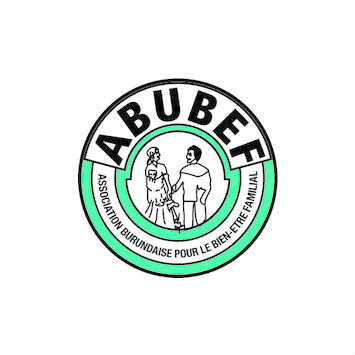

| 31 March 2016
Association Burundaise pour le Bien-Etre Familial
Set up in 1991, the Association Burundaise pour le Bien-Etre Familial's (ABUBEF) original mission was to deliver family planning. Over 20 years later, the organization operates a large number of services across a broad range of sexual and reproductive health and rights (SRHR) needs, including prevention and management of HIV and AIDS, youth-friendly counselling and education, pre-marital counselling, and antenatal and post-natal care. It accomplished this through 18 service points, including static and mobile clinics, and community-based services. An estimated 80% of its clients are poor, marginalized, socially excluded and/or under-served. Particular beneficiaries of ABUBEF’s services include young people living with HIV and AIDS, internally displaced persons, women of child-bearing age, sex workers, drug users and street children. ABUBEF delivers its service through a dedicated team which includes 81 staff, nearly 500 volunteers, 75 peer educators and well over 1,000 community-based distributors (CBDs). Their commitment to ABUBEF is crucial to the nation’s current and future sexual and reproductive health. ABUBEF’s partners include donors such as UNFPA, FHI, CARE and CNLS, and it works together with organizations including Réseau National des Jeunes Engagés pour la Lutte Contre le Sida (RENAJES) and the Association pour la Promotion de la Fille Burundaise (APFB). Website: http://www.abubef.org/

| 31 March 2016
Family Planning Association of India
Established in 1949, the Family Planning Association of India (FPAI) is a founding member of IPPF. Its work in sexual and reproductive health (SRH) covers safe motherhood and child survival, empowerment of women, male involvement, adolescent health and youth development. FPAI works closely with non-governmental organizations (NGOs) and the government. It runs 39 permanent clinics, 101 mobile facilities, and has a network of nearly 2,700 community-based distributors /services (CBDs/CBSs). It works with 563 private practitioners and 196 other agencies. In addition, FPAI operates 3 infertility clinics, a contraceptive retail sales programme, and a condom dispensing service. In total, FPAI operates over 4,000 service points. A community-centred approach is at the core of FPAI's work. Our programmes are designed to deliver improved health and standards of living, better decision-making, and greater self-reliance. It aims to enable men and women to form local voluntary groups to initiate action in communities. Work primarily focuses on under-served rural areas and urban slums. The organization exploits a variety of media to impart its message, including film, radio, newsletters, journals and other print materials, as part of a wide-ranging education programme addressing topics such as family planning, maternal and child health, the risks of unsafe abortion, infertility, the prevention of sexually transmitted infections (STIs) and counselling for newlyweds. FPAI encourages the empowerment of women through mahila mandals (women's groups), balwadis (nursery schools), and literacy and income generation programmes. It’s been addressing the concerns of young people in a holistic manner through 30 Sexuality Education, Counselling, Research, Training/Therapy (SECRT) Centres spread acrosss the country. The centres offer youth-friendly services that prepare young people for their future by building the confidence and self-esteem essential to forging healthy relationships. They also offer counselling and information on various developmental issues, including sex, coping with preer pressure, relationships, responsible sexual behaviour, marriage, parenthood, contraception and the prevention of STIs including HIV and AIDS. As an advocate, FPAI exerts influence through community representatives, through the media, and through representation on government bodies such as the Central Health and Welfare Council and Steering Committee on Population Education. Contacts Website: http://fpaindia.org/ Facebook: https://www.facebook.com/FPAI.national







